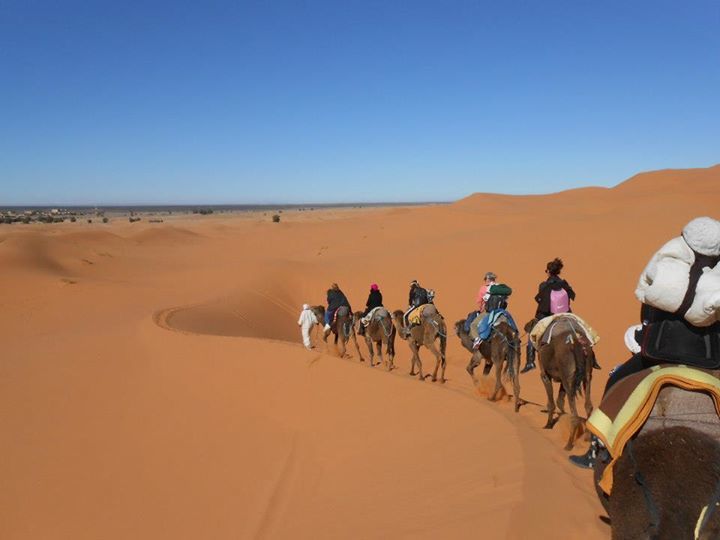International Field Experience Course in Morocco
Conflict Resolution in Domestic and Regional Contexts
December 29th, 2013 - January 8th, 2014
Application deadline: December 6th, 2013

For students of Conflict Resolution, Anthropology, Sociology, Religious Studies, North African and Middle East History, International Affairs, Jewish-Muslim Relations, and related topics, Morocco is an absolute gold mine with endless treasures to excavate. It has a rich history, during which the lives of Berbers and Arabs, Muslims and Jews, rural communities and city dwellers, have been intricately interwoven to produce a fascinating social, cultural, linguistic, and religions mosaic. These various communities have found ways to live together for millennia, in spite of occasional challenges and changes with which they were faced.
Morocco holds important geopolitical importance, with regard to its relation to the region, its relationship to the US, and its role in the Arab-Israeli conflict. Its importance is further heightened in light of events in the MENA region over the past couple of years. Moreover, the paradigm of Jewish-Muslim coexistence that it offers is unique and badly needed in today’s context, and the potential role it can play in promoting regional (and mainly Arab-Israeli) peace is critical.
The 11-day course will include a variety of field and hands-on experiences, including visits to various communities (Amazigh/Arab, Jewish/Muslim, rural/urban), home hospitality, and cultural events. It will also include lectures/presentations on a variety of topics including culture & conflict; Moroccan historical, social, political, and cultural landscape; women in Morocco; historical and contemporary affairs in Morocco and in the broader Middle East; and Jewish-Muslim relations in the Middle East & North Africa.
This program aims at providing the participants with a full immersion into Moroccan culture and an introduction to the components and the specificities of Moroccan society. This will be achieved by visiting and interacting with members of the various communities, and by staying with host families in their homes. Thus, not only will students learn academically about issues pertaining to the history and geopolitics of, and inter-communal relations within Morocco; they will get a first-hand glimpse into how Moroccans from all walks of life understand their realities and deal with challenges and changes they experience. A professional guide intimately familiar with Morocco will accompany us throughout the trip, together with the course instructor and educational staff.
Previous Trips
- Approaches to Conflict Management and Resolution: Field Work with Syrian Refugees in Jordan - Spring 2017
- Brazil - Summer 2016
- Indonesia - Gender and Conflict - Winter 2017
- Indonesia - Research Methods - Summer 2016
- Malta - Bridging Differences: Migration in the Mediterranean Spring 2017
- Northern Ireland - Summer 2016
- Reflective Practice in Israel/Palestine Winter 2017
- Spain: From Victimhood to Social Justice Basque Country Spring 2017
- The Balkans - Summer 2016

